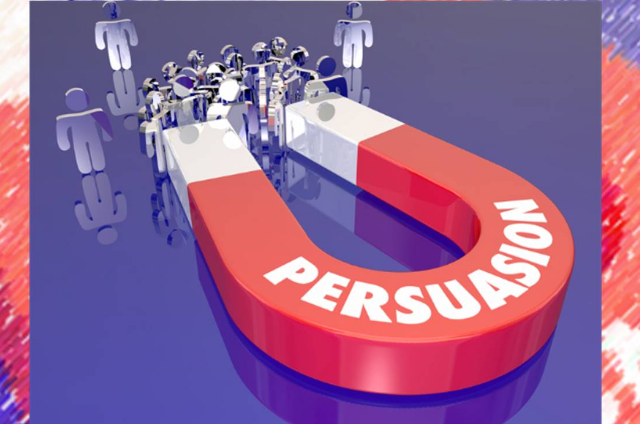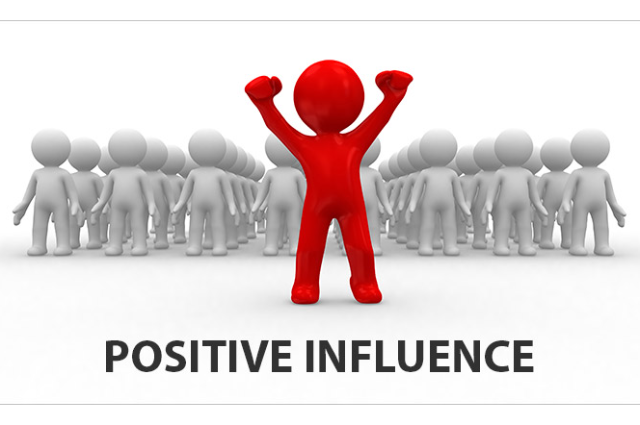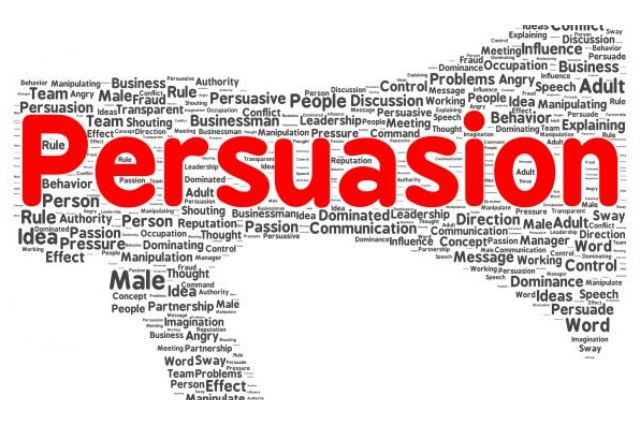Introduction:
In this article, you will learn the Art of Persuasion Skills which will make you become an influencer in Life & Career and help people transform their lives.

What is Persuasion?
Persuasion or persuasion arts is an umbrella term for influence. Persuasion can attempt to influence a person's beliefs, attitudes, intentions, motivations, or behaviors.
What is Influence?
- The ability to help others change their Thoughts, Beliefs & Actions.
- The ability to help people transform their lives.
Importance of Influence:

- To be more influential on the job. Helps you be more effective with your friends, family & children
- Learn how to spot negative persuasion strategies in ads & from politicians
- Helps you gain access to resources.
- Improve your relationships
- Be able to effectively share your ideas and get your point across.
The power of influence:
Beginning concept:
- Openness & Sincerity are the BEST Persuasion tools
- Be kind, be warm, be loving, be giving, & be happy
- Simply share some of yourself
“The head never hears… Until the heart has listened”
You must begin to see yourself as a “Master Persuader”
“Perception is Everything”
Persuasion Powerful Tool 1:

The following are the 6 Master principles of “Persuasion” which are scientifically proven.
- Reciprocity
- Scarcity
- Authority
- Commitments
- Social proof
- Likability
Reciprocity:
People respond in kind. Create positive loops!
For Example) in marketing giving samples free
“The law of scarcity”
We perceive things that are scarce as more valuable
For Example: “Limited Time Only”
Authority power:
Showing our “Position” or expertise
For Example Marketing experts, doctors, lawyers, etc.
4) Commitment:
People's commitments are very important to them
Commitments are powerful
“Progressive commitment”
Moving them along step-by-step
Social proof:
We look to others for clues as to what we should do
Other people are clueless too
For Example) Testimonials, reference clients, feedback.
Likability:
Why do you like one person more than another?
- Smile
- Similar traits
- Mutual friends
- Outgoing
- Body language
- Match speed and pace
- Similar language
- Agreeable & Open
- They like us!
- Similar IQ
- Listening & validating
- Appreciative
- Show interest
- Proximity
- Obligation
- Empathy
They must have the following Persuasion tool!
- “TRUST”
- Freely given
- Presumed
- Authority
- Reputation
- Mindless
- Earned
What builds trust?
- Time/history
- Consistency
- Sharing
- Reciprocating
- Testing
- Secret
- Rapport
- Mutual friends
Other Trust builders:
- Protection
- Value/belief
- Kindness/Caring
- Mutual goals
- Greed
- Lancing things
- Leverage/security
Emotional Reasoning:
- Do we act from emotion or logic?
- Does emotion back by logic?
- 90% Emotional 10% Logical
More powerful tools for Persuasion:
- Our most powerful human drive is to change our state
- People always do things for THEIR reasons Not ours!
Logic system:
- Everyone has a set system for how they think and how they put their logic together.
- “That Makes sense”
- Talk or Explain
The power of perceptual contrast
- High price – Low price
- Old days – Today
- Old way – New way
- Long time – Short time
For Example) Now Jus 10$
“The Setting pre-defines the Situation”
- Office
- Casual setting
- Home advantage
- “Tell people who they are”
- Warm
- Kind
- Loving
- Patient
- Excited
- Intelligent
Listen for Values & beliefs. Then apply them to whatever idea you want to promote
Persuasion Tool 2: Rapport Building & Reputation

“Reputation”
A positive reputation “Pre supposes” several nice things about you
It’s like being liked Ahead of Time!
For Example) Referral
“Matching & Mirroring”
- Physiology
- Beliefs
- Self talk
- Visualization
- Sequence
Make other people feel comfortable
Use good “Attending Skills”
Let people know what you like in them!
Smile! So happy to see you!
Speaking Vs Listening
Talk no more than 30% of the time
“Conversational Generosity”
Proximity: (Nearness) More close more open
Appropriate touch: Like a handshake
Body language: Such a way we are paying attention to others
It is much better to be interested than interesting
“Sensing & Expanding” in conversation. Belief value, idea, logic, etc
For Example,) that is true. Acknowledging.
Compliments:
- For Example) Nice dress!
- Help people feel good about themselves
Use humor to build rapport:: 40% of all ads use humor!
Attention
Defensiveness (Less)
Likability
“Emotions create Motion”: People are moved by their emotions.
Increase the person’s faith:
Demonstrate!
Go first.
“Be the change you want to see in the world”
Doubt:
- How can we use doubt?
- Loosen old negative beliefs
- Help them look at something anew
- Open them to new ideas
Develop a network of friends
Who will always stand by you?
Obedience:
- People will follow gentle instructions.
- Lead & others will follow…
- Be bold & take a leadership position.
Believability:
- People tend to believe what they read & rarely question the merits.
- For Example) Testimonials
- Use quotes to boost credibility!
- “Bring on your witness”
- Show your research “He with the best research wins”
Confidence: People fear doing the wrong thing. So they naturally follow confidence.
Questions: They determine the focus & direction.
Storytelling: Storytelling keeps interested
Reverse – Rebuttal: Turn the objections into the Reason!

Conclusion:
Thus by applying the above Persuasion tools & techniques we can become positive Influencers in Life & Career which will help in transforming the lives of others.
